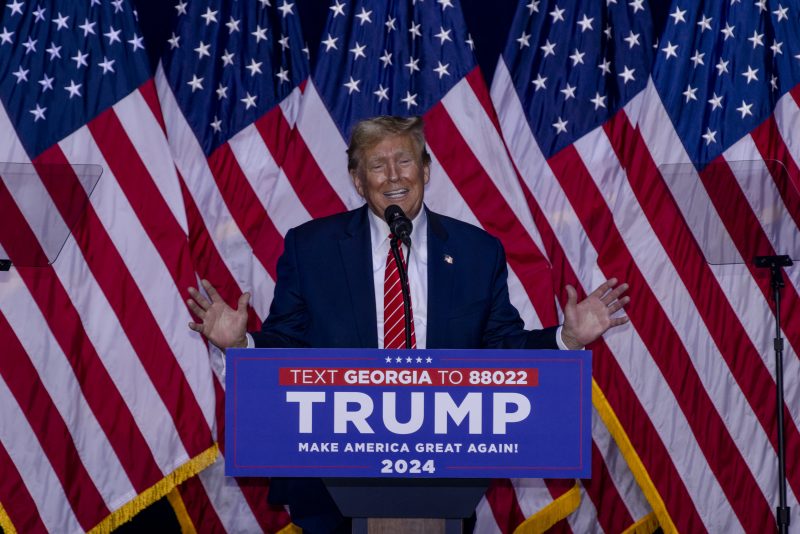In a recent turn of events, former President Donald Trump appears to be implementing a strategic maneuver to delay a trial in New York pending a crucial Supreme Court hearing on the issue of presidential immunity. This decision comes as no surprise considering the longstanding legal battles and controversies that have surrounded Trump both during and after his presidency.
The trial in question relates to an investigation into the financial dealings of Trump and his organization, the Trump Organization, by the Manhattan District Attorney’s office. This legal scrutiny has been ongoing for some time and has sparked heated debates about the extent of presidential immunity, especially in cases involving alleged misconduct that occurred prior to or during a president’s time in office.
By seeking a delay in the trial, Trump is effectively buying time and potentially avoiding the immediate legal repercussions that could arise from a trial proceeding in the near future. This move highlights the complexities and challenges of holding a former president accountable for any alleged wrongdoing, particularly when grappling with the legal and political implications of such proceedings.
The Supreme Court’s imminent review of the issue of presidential immunity adds another layer of complexity to the situation. The outcome of this hearing could have far-reaching implications not only for Trump but for future presidents and the limits of accountability they may face once out of office.
Trump’s legal team’s decision to seek a delay in the trial underscores the importance of strategic legal tactics in navigating complex legal battles. This move is just one of many in a series of legal maneuvers that have characterized Trump’s legal battles throughout his presidency and beyond.
As the legal saga unfolds, it remains to be seen how the courts will ultimately interpret the issue of presidential immunity and whether Trump will be held accountable for any alleged misconduct. The outcome of both the trial in New York and the Supreme Court hearing will undoubtedly shape the future of presidential accountability and the legal precedents that guide such matters in the years to come.

